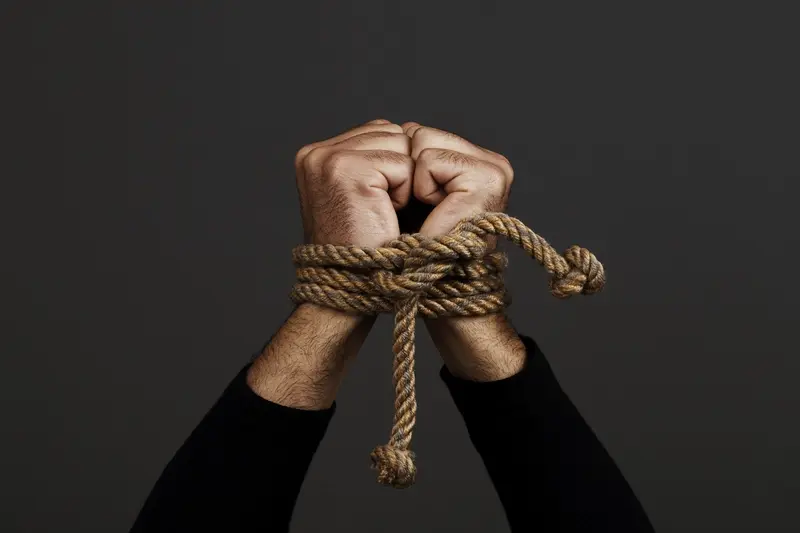Can Someone Steal My App Idea Before I Launch It?
Over 90% of app developers worry about someone stealing their app idea before they can bring it to market. If you've got a brilliant concept brewing in your mind, chances are you've lost sleep wondering whether sharing it with developers, investors, or even friends could come back to haunt you. This fear is completely natural—after all, your app idea feels like your baby, and the mobile app industry is worth hundreds of billions globally.
Here's the thing though: most successful app developers will tell you that execution matters far more than the initial idea itself. I've worked with countless clients over the years who've come to me clutching their concepts like state secrets, convinced that someone's going to swoop in and steal their thunder. But the reality is much more nuanced than that simple fear suggests.
The value isn't in the idea itself—it's in how well you execute that idea and bring it to life
That said, protecting your app idea isn't just about paranoia; it's about smart business practices. There are legitimate legal protections available, from patent protection to non-disclosure agreements, and understanding these options can give you peace of mind as you move forward. The key is knowing what can actually be protected, what's worth protecting, and when protection makes sense for your specific situation. This guide will walk you through the real risks, the available legal protection options, and practical steps you can take to safeguard your intellectual property without letting fear paralyse your progress.
Understanding What Makes an App Idea Unique
After working with hundreds of entrepreneurs and businesses over the years, I can tell you that most people think their app idea is completely unique—and frankly, they're usually wrong. But here's what's interesting: being unique isn't always what matters most. What really counts is whether your idea solves a problem better than existing solutions.
Let me break this down properly. Your app idea becomes unique through a combination of factors, not just the basic concept. The target audience you're serving, the specific way you solve their problem, your business model, and even your approach to user experience all contribute to what makes your idea stand out.
The Building Blocks of App Uniqueness
Most successful apps aren't doing something completely new; they're doing something familiar but better. Think about it this way—there were loads of messaging apps before WhatsApp, but WhatsApp found a way to do messaging that felt different and more valuable to users.
- Problem-solving approach: How you tackle the user's pain point
- Target market: Who specifically you're building for
- User experience design: How people interact with your solution
- Business model: How you make money from the app
- Technology implementation: The technical approach you choose
Why Execution Beats Ideas Every Time
Here's something that might sting a bit: ideas are relatively worthless on their own. The real value comes from how well you execute that idea. Two teams could start with identical concepts and create completely different products based on their execution choices.
Your app becomes truly unique through the thousands of small decisions you make during development—from colour schemes to feature prioritisation to user onboarding flows. These details are what users actually experience, and they're much harder to copy than a basic concept.
The Reality of App Idea Theft
Let's be honest here—app idea theft isn't as common as most people think it is. I've worked with hundreds of clients over the years, and the number who've actually had their ideas stolen? I can count them on one hand. The fear is much bigger than the reality.
Here's what actually happens in most cases: people see similar apps launching and immediately assume theft. But the truth is, great minds often think alike. Two developers might spot the same gap in the market and come up with similar solutions independently. It happens all the time in tech.
Why Ideas Rarely Get Stolen
Most app developers are too busy working on their own projects to steal yours. Building an app takes months of hard work, significant investment, and a proper team. Why would someone abandon their own vision to chase after yours? The execution matters far more than the initial idea anyway—and that's something nobody can steal from you.
Focus on execution rather than secrecy. A mediocre idea executed brilliantly will always beat a brilliant idea executed poorly.
When Real Theft Actually Occurs
The few genuine cases of app idea theft I've encountered usually involve larger companies copying successful smaller apps after they've launched and proven their market value. This isn't about stealing pre-launch ideas—it's about copying proven business models. Even then, the original often maintains its advantage through better user relationships and continued innovation.
The reality is that sharing your app idea with potential partners, developers, and advisors poses minimal risk. Most professionals you'll work with have their own projects and reputations to protect. Focus your energy on building something people actually want rather than worrying about theoretical theft that probably won't happen.
Legal Protection Options for App Developers
When you're building an app, protecting your work legally isn't just smart—it's absolutely necessary. There are several ways to safeguard your app idea and the work you put into it, though not all protection methods work the same way.
Copyright protection kicks in automatically the moment you create original code, designs, or content for your app. You don't need to register anything; it just happens. This covers your actual code, graphics, text, and other creative elements. What it doesn't cover is your basic app idea or concept—that's where things get trickier.
Trademark Protection for Your Brand
Your app's name, logo, and branding elements can be protected through trademark registration. This stops others from using confusingly similar names or designs that might trick users into thinking they're downloading your app. Trademark protection is particularly valuable once your app gains popularity and recognition in the market.
Trade Secrets and Confidentiality
Some parts of your app—like unique algorithms, business processes, or proprietary methods—might qualify as trade secrets. This type of protection requires you to keep these elements confidential and take reasonable steps to maintain their secrecy. It's often used alongside other protection methods rather than as a standalone solution.
The key thing to understand is that legal protection works best when you use multiple approaches together. Understanding copyright laws protects your creative work, trademarks protect your brand, and trade secrets protect your confidential processes. None of these will stop someone from creating a similar app, but they will prevent direct copying of your specific work and branding.
Patent Protection for Mobile Applications
When it comes to protecting your app idea through patents, I need to be honest with you—it's not as straightforward as you might think. Patent protection for mobile apps is a complex area that many developers misunderstand, and the reality might not be what you're expecting.
Patents protect inventions, not ideas. This means you can't just patent the concept of "a food delivery app" or "a fitness tracking app." What you can potentially patent are specific technical innovations within your app—unique algorithms, novel user interface methods, or groundbreaking technical processes that solve problems in new ways.
What Can Actually Be Patented
The key thing to understand is that software patents must cover something genuinely innovative and non-obvious. Think of it this way: if your app uses a revolutionary new way to compress images or has invented a completely new method for processing payments, that might be patentable. But most standard app features won't qualify for patent protection.
The patent process can take years to complete and costs thousands of pounds, making it unsuitable for most standard mobile applications
The Reality Check
Here's where I have to give you some tough love. Most app ideas don't contain patentable elements. The standard features we use in apps—user registration, social media integration, push notifications—these are all well-established technologies. Even if you combine them in a slightly different way, that combination probably isn't patent-worthy.
Patent applications are expensive, time-consuming, and offer no guarantee of success. For most app developers, particularly those just starting out, focusing on building and launching quickly will serve you much better than spending months and thousands of pounds on patent applications that may never be approved.
Non-Disclosure Agreements and Contracts
When you're ready to share your app idea with developers, designers, or potential investors, you'll want to protect yourself with the right paperwork. Non-disclosure agreements—or NDAs as they're commonly called—are legal documents that prevent the people you're working with from sharing your idea with others.
Think of an NDA as a promise on paper. The person signing it agrees not to tell anyone about your app concept, and if they break that promise, there can be legal consequences. Most professional app development agencies will happily sign NDAs because they understand your concerns and want to build trust from the start.
What Should Your NDA Include?
A good NDA should clearly define what information is confidential—this includes your app idea, business plans, technical details, and any other sensitive information you share. It should also specify how long the agreement lasts; most NDAs remain in effect for two to five years, which gives you plenty of time to develop and launch your app.
Development Contracts Go Further
Beyond NDAs, your development contract should include clauses about intellectual property ownership. This means making it crystal clear that you own the app idea, the code, and everything else created during development. Without this, you could find yourself in a messy legal situation later on.
Professional agencies will include these protections as standard practice—it's part of doing business properly. If someone refuses to sign reasonable confidentiality agreements, that's probably not someone you want to work with anyway. Good developers understand that protecting your idea protects their reputation too.
Protecting Your App Through Development Process
When you're building your app, you'll be working with developers, designers, and other professionals who will see your idea in detail. This is where many app creators start to panic—but there are practical steps you can take to keep your app idea safe whilst still getting the work done properly.
The most straightforward protection is getting everyone to sign a non-disclosure agreement before you share any details. Your developers should be happy to do this; it's standard practice in the industry. But here's the thing—choosing the right development team matters more than any legal document. Work with established agencies or freelancers who have a reputation to protect. They won't risk their business stealing your app idea.
Keep detailed records of your development process, including dates, communications, and design iterations. This creates a clear timeline showing you as the original creator.
Smart Ways to Share Information
You don't need to reveal everything at once. Share information gradually as the project progresses. Start with basic functionality and add more complex features once you've built trust with your team. This approach protects sensitive parts of your app idea whilst still allowing your developers to do their job effectively.
Document Everything Properly
Keep copies of all contracts, emails, and project files. Use version control systems that timestamp changes. This documentation becomes your proof of ownership if any disputes arise later. Understanding professional app development timelines will also help you set realistic expectations and maintain proper documentation throughout the process.
- Use written contracts that clearly state intellectual property ownership
- Request regular progress updates and keep copies
- Maintain separate backups of all project files
- Track any changes or additions made during development
The development phase is actually one of the safer periods for your app idea. Professional developers are more interested in building great apps than stealing ideas—they've usually got plenty of their own projects to work on.
Building a Strong Brand and Market Position
Here's the thing about protecting your app idea—sometimes the best defence is a good offence. Building a strong brand and getting to market quickly can be far more effective than any legal protection you put in place. I've seen countless apps succeed not because they had the most original idea, but because they executed it brilliantly and built a loyal following first.
Your brand is what people remember about your app. It's the name, the logo, the colours, and most importantly, the experience you create. When someone thinks about ride-sharing, they think Uber. When they need food delivered, they think Deliveroo or Just Eat. These companies didn't invent these concepts, but they built such strong brands that they became synonymous with the service.
Getting to Market First
Speed matters more than perfection in the app world. The first mover advantage is real—being first to market gives you time to build relationships with users, gather feedback, and improve your product before competitors arrive. Even if someone protects your mobile game from copycats later, you'll already have established users who trust your brand.
Creating Brand Loyalty
Focus on building something people actually want to use repeatedly. This means listening to user feedback, fixing problems quickly, and continuously adding value. A strong community around your app becomes your best protection against copycats.
- Launch with core features rather than waiting for perfection
- Build genuine relationships with early users
- Create a memorable brand identity
- Gather and act on user feedback consistently
- Focus on user experience over flashy features
Remember, ideas are common but great execution is rare. Your energy is better spent building something people love than worrying about who might steal your concept.
Conclusion
After eight years of working with clients who've shared their app ideas with me, I can tell you that most concerns about idea theft are overblown. The reality is that execution matters far more than the initial concept—and there are solid legal protections available when you need them.
Your app idea deserves protection, but not at the expense of moving forward. Non-disclosure agreements work well for early conversations; patent protection makes sense for truly innovative features; trademark registration safeguards your brand identity. These aren't complicated processes, and they don't require massive legal budgets to get started.
What I've seen time and again is that the apps which succeed are the ones that get built, tested, and improved based on real user feedback. The founder who spends months perfecting their NDA template usually gets beaten to market by the team that started coding three weeks ago. Speed and execution trump secrecy almost every time.
That said, don't be reckless. Use basic legal protection when sharing detailed plans—especially with potential developers or investors. Keep records of your development process. Register your trademarks once you've settled on branding. But don't let fear of theft paralyse your progress.
The mobile app market rewards action, not perfection. Your idea is just the starting point; what you build, how you build it, and how quickly you can adapt to what users actually want—that's what determines success. Focus your energy there, and you'll be fine.
Share this
Subscribe To Our Learning Centre
You May Also Like
These Related Guides

Can App Developers Steal You Idea?

Am I Legally Responsible for What People Do on My App?



